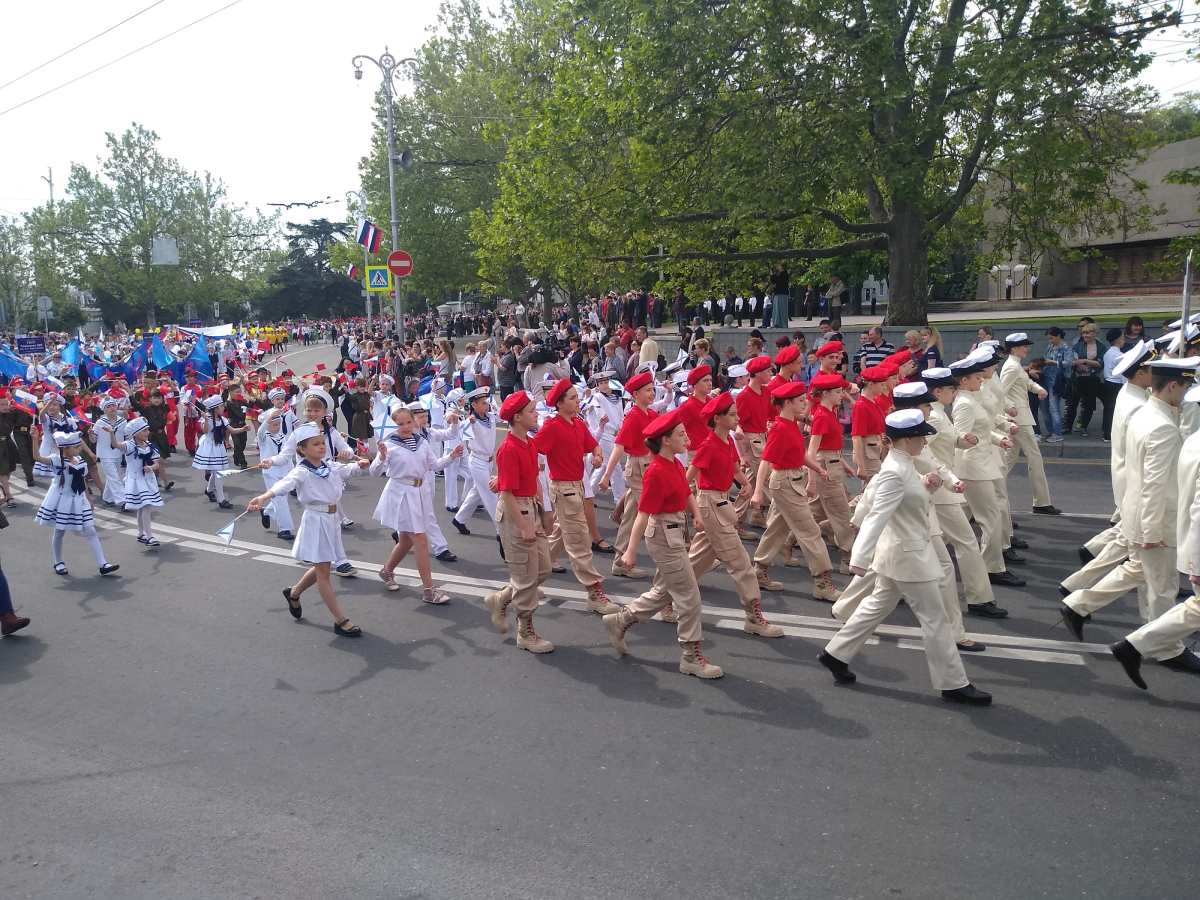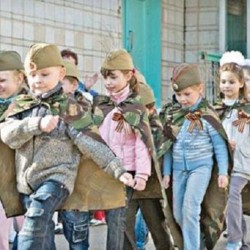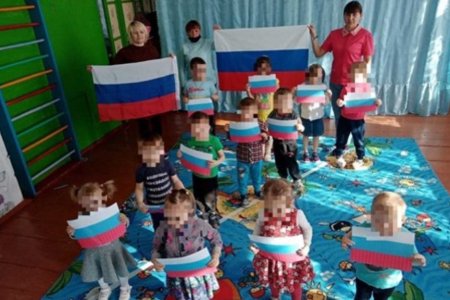
Dangerous changes to the school program in Russia and occupied Crimea will still further systematize Russia’s militarization and indoctrination of Ukrainian children. Russia is hoping to bring such ‘innovations’ to any part of Ukraine while it is under Russian occupation, with the aim overtly being to convince children that they are ‘Russian’ and to get them to want to fight, even die, for the aggressor state.
Few of the additions to the school program are, in fact, new. Both ‘compulsory labour’ and ‘basic military training’ were parts of the Soviet syllabus. There is, however, an important difference, as noted by Daniil Ken, head of the Alliance of Teachers, namely that, regardless of the terminology it hides behind, Russia is waging a war of aggression against Ukraine. Any ‘courses’ on military training, as well as the new ‘Fundaments of safety and defence of the motherland’ will, inevitably, involve ideological indoctrination and propaganda of war.
It was clear from at least the beginning of 2023 that compulsory courses of basic military training were to be introduced in occupied Crimea and Russia.
Current Time reported at the end of July that Russia’s State Duma has passed a bill which will, for the first time since Soviet times, make it possible to force children to carry out work tasks. The work involved is far from hard labour, but the element of compulsion does hearken back to Soviet times. This is no accident, Daniil Ken believes. There is no particular economic reason for the change, with the labour involved fairly uncontroversial (planting trees, taking part in Saturday clean-up actions, etc.) In fact, Kyen presumes that this particular move is aimed at ‘diluting’ Russia’s military agenda which people get tired of. “You can’t constantly talk about the war, about the special operation [Russia’s official euphemism], about the battle with the West, ‘Parent 1 and 2’. You have to give the public something else. The regime can’t offer people any ideas, opportunities, political reforms or economic development.” The only way out, he goes on to say, is to appeal to conservatism and to what in Russia (and not in Ukraine) are fairly popular ideas. Ken says that millions in the Russian Federation are nostalgic for the USSR, so some of its attributes, for the Soviet authorities, Soviet schools, etc.
The other change is much more sinister, especially for occupied parts of Ukraine. An amendment has been passed introducing into the school curriculum a new subject entitled ‘Fundamentals of safety and defence of the motherland’. Although the full change will only be implemented from 2024, school students will begin ‘basic military training’ in September this year, with this including learning the basics of using drones.
Asked to comment, Ken noted that the tendency towards standardization, ever-mounting propaganda and the abuse of administrative resources had long been evident. Russia’s full-scale invasion led to a sharp escalation in such processes. If at first, this was fairly chaotic, unsystematic, with individual propaganda lessons, initiatives, etc, there is now a drive to systematize such efforts and make them compulsory.
Children will now, as part of a compulsory subject, learn how to load and fire Kalashnikov rifles, how to throw grenades and similar. Children will also be told about the war and may well soon end up ‘taught’ by those who fought in Ukraine. This would hopefully not include the convicted murderers and other violent criminals who were released from prison and later ‘pardoned’ by Putin for killing Ukrainians. Even that, however, is not guaranteed since Russian legislators passed a bill protecting so-called ‘Wagner private military company’ [pmc] and other pmc mercenaries, just like Russia’s armed forces, from comments and information ‘discrediting’ them. In Russia and occupied Crimea, you get seven years or more for revealing Russian crimes at Bucha or Izium, nothing at all for committing atrocities.
Ken notes that any independent [‘dissident]’ thinking, any dissent is basically prohibited in Russian and occupied Crimean schools, with people effectively forced to be silent and not reveal what they think. This, Ken says, is in marked contrast to any supporter of Russia’s war who is encouraged by the regime and can say whatever he wants.
None of the militarization and indoctrination is new and has been regularly reported since Russia’s invasion of Crimea. Before, however, the activities were, at least formally, optional. Ken reports that the so-called ‘conversations about important things’ that Russia imposed on all schools under its control from September 2022 were still a grey area from a legal point of view. Although schools had to hold these so-called ‘conversations’, containing war propaganda, flagrant distortion of history, and glorification of military service, a large number of school students, parents and / or teachers did try to refuse to take part. Kyen notes that many used the sample forms offered by the Alliance and says that there was around a 50% chance of the students being allowed to miss them.
If this new subject becomes part of the curriculum, there will essentially be no possibility of avoiding it. A key aim of the ‘basic military training’ is to provide both the essential skills and to propagandize army service. There are instructions to the teachers, for example, aimed at pushing ‘career opportunities’, etc. in the army.
The Crimean Human Rights Group [CHRG] and other NGOs have, since 2014, been monitoring Russia’s violations in occupied Crimea and warning of the dangers of its militarization of childhood. Olha Skrypnyk, Head of CHRG, stresses that propaganda aimed at encouraging children and young people to want to enter the aggressor state’s armed forces is a war crime. Although most of those Crimean Ukrainians sent to fight Russia’s war against Ukraine may well have been mobilized, a child of ten or eleven in 2014 would have experienced years of systematic lies and distortion both at school and from the Russian-controlled media. Surrounded by such distortion, it would not be surprising if they came to believe that Russia was their ’motherland’ which they should join the army to ‘defend’. Such propaganda methods are aimed at eliminating Ukrainian identity, and Skrypnyk notes that Russia’s militarization of children is viewed as part of the international crime of genocide, together with other crimes against children – their forced deportation to Russia, their ‘adoption’, change of name and coercion to make them adopt Russian citizenship.



